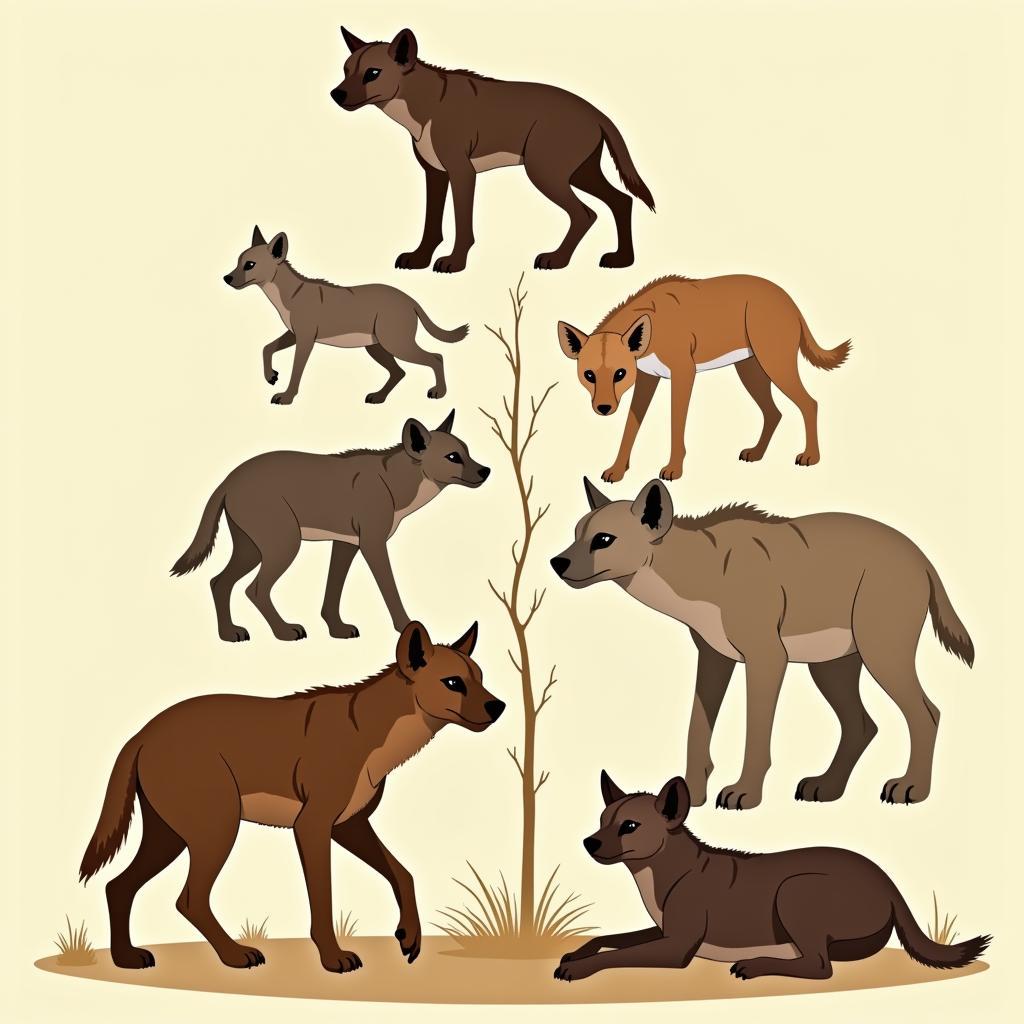Understanding African Horse Sickness: A Comprehensive Guide
African horse sickness (AHS) is a devastating viral disease that primarily affects equids, including horses, donkeys, and mules. This highly contagious disease can cause significant economic losses and pose a serious threat to equine populations worldwide. This article provides a comprehensive overview of African horse sickness, including its causes, symptoms, diagnosis, treatment, and prevention.
What is African Horse Sickness?
AHS is a non-contagious, orbivirus-borne disease transmitted primarily by biting midges ( Culicoides spp.). The virus responsible for AHS belongs to the genus Orbivirus within the family Reoviridae. While primarily affecting equids, the disease can also occasionally affect zebras and dogs. Understanding the nature of this virus is crucial for effective management and control of AHS outbreaks.
Symptoms of African Horse Sickness
The clinical signs of AHS vary depending on the form of the disease, which can range from mild to severe. There are four main forms: horse sickness fever, cardiac form, pulmonary form, and mixed form. Horse sickness fever presents with mild fever, congestion of the mucous membranes, and swelling around the eyes. The cardiac form involves heart damage, leading to swelling in the head and neck, and difficulty breathing. The pulmonary form primarily affects the lungs, causing severe respiratory distress and frothy nasal discharge. Finally, the mixed form combines symptoms of both the cardiac and pulmonary forms.
Diagnosing African Horse Sickness
Diagnosing AHS requires a combination of clinical observation, laboratory testing, and post-mortem examination. Veterinarians will assess the animal’s symptoms, history, and geographic location. Laboratory tests, such as virus isolation, polymerase chain reaction (PCR), and antigen detection assays, can confirm the presence of the AHS virus. Post-mortem examination can reveal characteristic lesions in affected organs.
Treatment and Management of AHS
Unfortunately, there is no specific antiviral treatment for AHS. Supportive care, such as fluid therapy, anti-inflammatory drugs, and good nursing care, can help alleviate symptoms and improve the animal’s chances of survival. However, the mortality rate, especially in the severe forms of the disease, can be as high as 95%.
Preventing African Horse Sickness
Prevention is the most effective strategy against AHS. Vaccination plays a crucial role in controlling the spread of the disease. Several vaccines are available, but their effectiveness varies depending on the specific AHS virus serotype prevalent in the region. Vector control measures, such as using insecticides and eliminating breeding sites for Culicoides midges, are essential for reducing transmission. Quarantine restrictions and movement controls help prevent the introduction and spread of the virus to unaffected areas.
The Impact of African Horse Sickness on Equine Industries
AHS outbreaks can have devastating economic consequences for equine industries. The disease can lead to significant losses in horse populations, disrupting trade and transportation of horses, and impacting the livelihoods of those who depend on horses for work or recreation.
“Early detection and rapid response are crucial for containing AHS outbreaks and minimizing their impact,” explains Dr. Sarah Jones, DVM, PhD, a leading expert in equine infectious diseases. “Implementing strict biosecurity measures and maintaining a high level of vigilance are paramount in protecting equine populations from this devastating disease.”
Conclusion
African horse sickness remains a significant threat to equine health and welfare globally. Understanding the disease’s transmission, symptoms, and prevention is vital for effective control and management. While there is no cure, preventative measures such as vaccination and vector control are crucial in minimizing the impact of this devastating disease. By working together and implementing comprehensive control strategies, we can strive to protect equine populations from the devastating effects of African horse sickness.
FAQ
-
What are the common signs of African horse sickness?
The signs vary, but can include fever, swelling around the eyes and head, difficulty breathing, and frothy nasal discharge. -
Is there a cure for African horse sickness?
No, there is no specific antiviral treatment for AHS. Supportive care is the primary approach. -
How is African horse sickness transmitted?
It is primarily transmitted by biting midges ( Culicoides spp.). -
Can humans get African horse sickness?
No, African horse sickness does not affect humans. -
How can I protect my horse from African horse sickness?
Vaccination and vector control are the most effective preventive measures. -
What should I do if I suspect my horse has African horse sickness?
Immediately contact your veterinarian. Early diagnosis and reporting are crucial. -
Is African horse sickness contagious between horses?
It is non-contagious and requires a vector for transmission.
“Prevention through vaccination and vector control is our best defense against AHS,” adds Dr. Jones. “Regular veterinary checkups and maintaining good biosecurity practices are essential for safeguarding equine health.”
For further information or assistance with African Horse Sickness, please contact us at Phone Number: +255768904061, Email: kaka.mag@gmail.com Or visit us at: Mbarali DC Mawindi, Kangaga, Tanzania. We have a 24/7 customer support team.



